
Graz: Austria's Hidden Gem
Graz, Austria's second-largest city, is a delightful blend of old-world charm and modern vibrancy. Nestled along the banks of the Mur River, Graz boasts a rich history that dates back to Roman times. Its well-preserved medieval old town, a UNESCO World Heritage site, is a maze of narrow streets, bustling squares, and beautiful courtyards, perfect for a leisurely stroll. The city's crown jewel is the Schlossberg, a hill topped with the iconic Uhrturm (Clock Tower), offering panoramic views of the city. The climb to the top may be steep, but the vistas are well worth the effort. Graz is also a city of culture, home to numerous museums, galleries, and theaters. The Kunsthaus, with its futuristic blob-like architecture, is a must-visit for contemporary art lovers. Beyond its historical and cultural offerings, Graz is a gastronomic delight. The city's vibrant food scene ranges from traditional Styrian cuisine to international flavors. Don't miss the local farmer's markets, where you can sample fresh produce and regional specialties. Whether you're exploring its historic sights, indulging in its culinary delights, or simply soaking in its unique ambiance, Graz promises a memorable experience for every visitor.
Local tips in Graz
- Visit the Schlossberg early in the morning or late in the afternoon to avoid crowds and enjoy the best light for photos.
- Purchase a Graz Card for free or discounted entry to many of the city's attractions and free public transport.
- Try the local specialty, Styrian pumpkin seed oil, available at many shops and markets in the city.
- Take a leisurely stroll through the Herrengasse, the main shopping street, to experience the city's vibrant atmosphere and beautiful architecture.
- Explore the Farmers' Market at Kaiser-Josef-Platz on mornings from Monday to Saturday for fresh local produce and regional delicacies.
Neighbourhoods in Graz
Graz: Austria's Hidden Gem
Graz, Austria's second-largest city, is a delightful blend of old-world charm and modern vibrancy. Nestled along the banks of the Mur River, Graz boasts a rich history that dates back to Roman times. Its well-preserved medieval old town, a UNESCO World Heritage site, is a maze of narrow streets, bustling squares, and beautiful courtyards, perfect for a leisurely stroll. The city's crown jewel is the Schlossberg, a hill topped with the iconic Uhrturm (Clock Tower), offering panoramic views of the city. The climb to the top may be steep, but the vistas are well worth the effort. Graz is also a city of culture, home to numerous museums, galleries, and theaters. The Kunsthaus, with its futuristic blob-like architecture, is a must-visit for contemporary art lovers. Beyond its historical and cultural offerings, Graz is a gastronomic delight. The city's vibrant food scene ranges from traditional Styrian cuisine to international flavors. Don't miss the local farmer's markets, where you can sample fresh produce and regional specialties. Whether you're exploring its historic sights, indulging in its culinary delights, or simply soaking in its unique ambiance, Graz promises a memorable experience for every visitor.
When is the best time to go to Graz?
Iconic landmarks you can’t miss
Schlossberg Graz
Experience the breathtaking views and rich history at Schlossberg Graz, a premier park and tourist attraction in the heart of Austria.
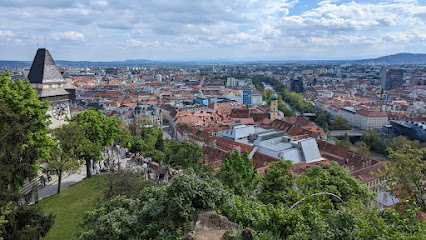
Hauptplatz der Stadt Graz
Discover the historical charm and vibrant atmosphere of Hauptplatz, Graz's iconic main square, perfect for culture lovers and food enthusiasts alike.
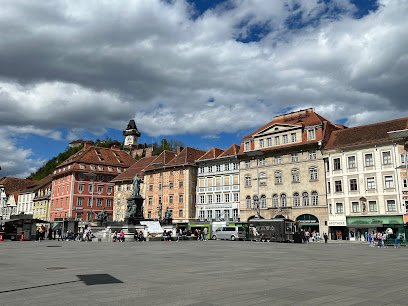
Uhrturm
Explore the Uhrturm in Graz, Austria - a historical landmark offering stunning views and a glimpse into the city's rich heritage.
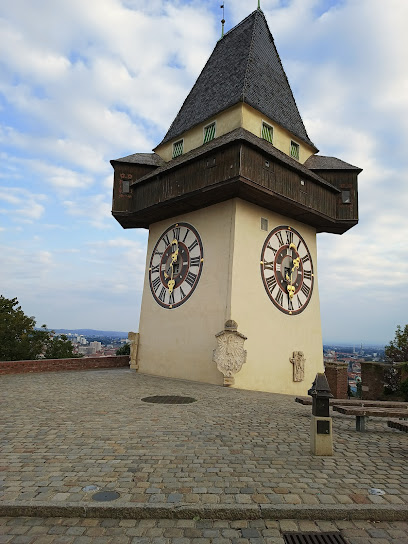
Schloss Eggenberg
Experience the grandeur of Schloss Eggenberg, a baroque masterpiece in Graz, Austria, blending history, art, and stunning gardens.
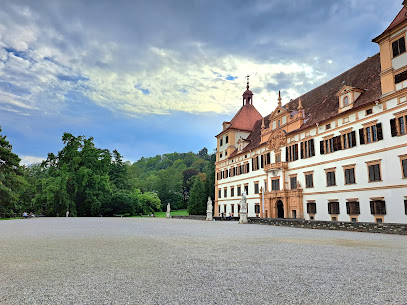
Kunsthaus Graz
Explore the innovative world of modern art at Kunsthaus Graz, a striking museum that blends architecture with groundbreaking exhibitions.

Murinsel Graz
Explore Murinsel Graz, a breathtaking floating island café and amphitheater on the Mur River, offering stunning views and vibrant cultural experiences.
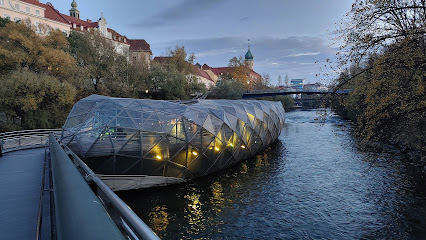
Graz Park
Explore Graz Park, a tranquil urban oasis in Austria, perfect for relaxation, picnics, and cultural experiences amidst nature's beauty.
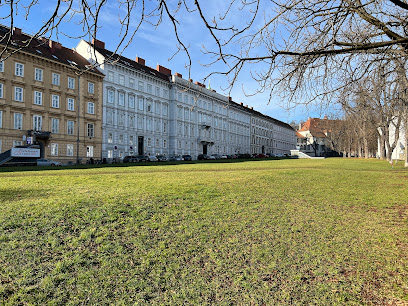
Oper Graz
Discover the cultural gem of Graz at Oper Graz, where history, architecture, and world-class performances unite in an unforgettable experience.
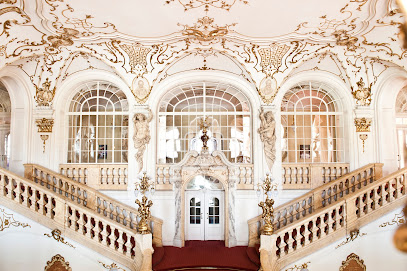
Landeszeughaus
Explore the Landeszeughaus in Graz, a captivating museum showcasing Austria's rich military history through an impressive collection of armory and artifacts.
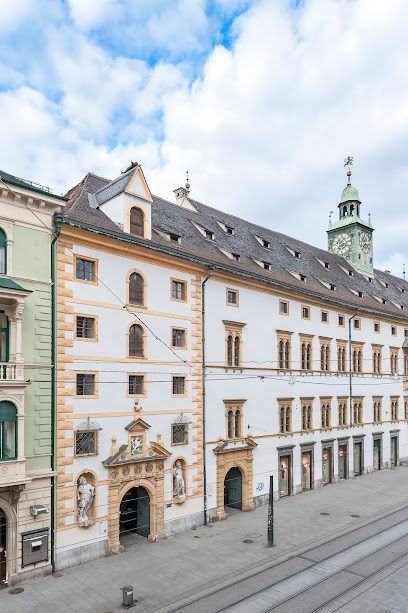
Old Town of Graz
Discover the historical heart of Graz in the captivating Old Town, where medieval charm meets vibrant culture and delightful local cuisine.
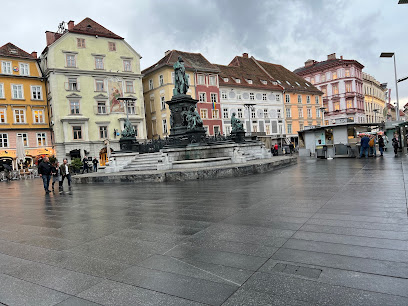
Volksgarten Graz
Explore the serene beauty of Volksgarten Graz, a lush park offering tranquility, picturesque scenery, and a taste of local culture in the heart of Graz.
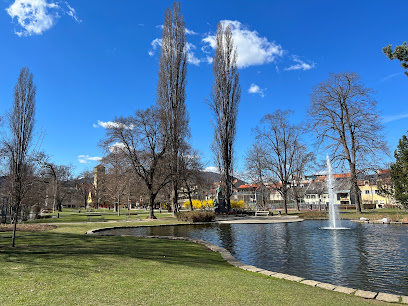
Kasematten - Schlossbergbühne
Experience the vibrant live music scene at Kasematten, a unique venue carved into Graz's historic Schlossberg offering stunning views and diverse performances.
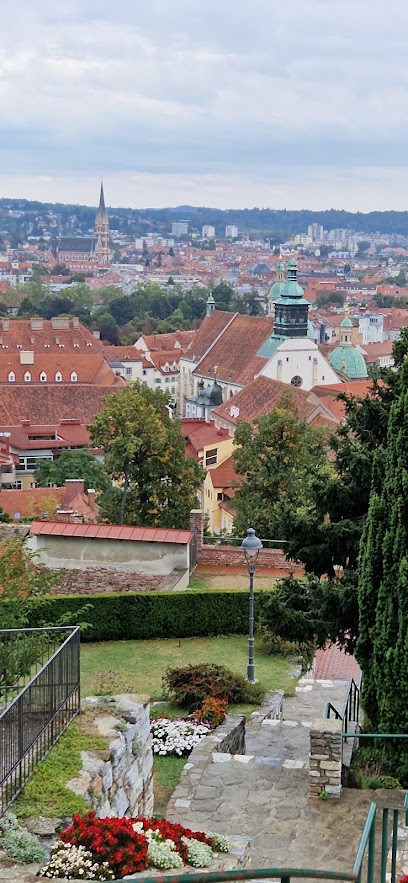
Schlossbergbahn
Discover the beauty of Graz from above with the Schlossbergbahn mountain cable car, a must-visit tourist attraction for stunning city views.
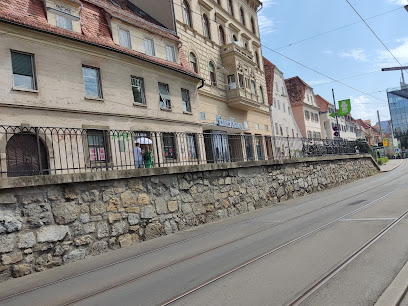
New Gallery Graz
Explore the New Gallery Graz, where modern art meets natural history in the heart of Austria's cultural capital.
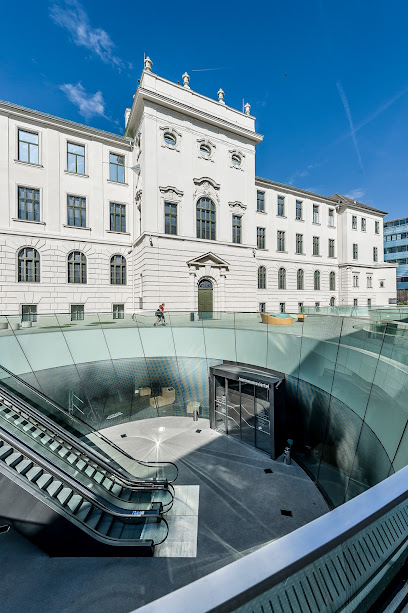
Graz Cathedral
Discover the stunning Graz Cathedral, an architectural masterpiece blending Baroque artistry and rich history in the heart of Graz, Austria.
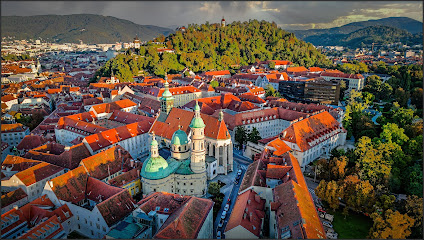
Unmissable attractions to see
Schlossberg
Explore the enchanting Schlossberg in Graz, where history, stunning views, and lush parks converge in an unforgettable experience.

Hauptplatz der Stadt Graz
Discover the historical charm and vibrant atmosphere of Hauptplatz, the heart of Graz, Austria's second-largest city, rich in culture and heritage.
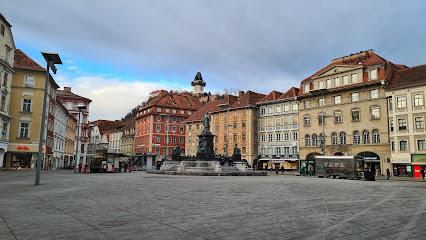
Uhrturm
Discover Graz's Uhrturm, a historic clock tower atop Schlossberg offering breathtaking views and a glimpse into the city's rich cultural heritage.
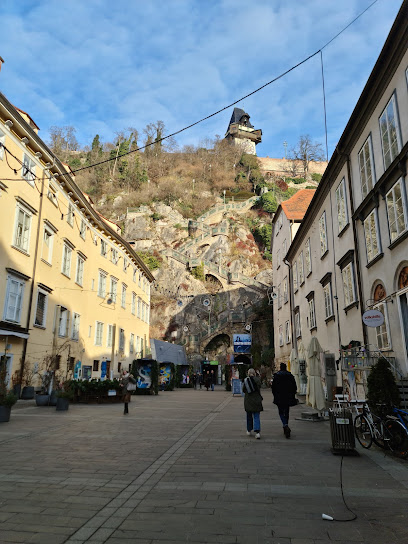
Schloss Eggenberg
Explore Schloss Eggenberg in Graz, a stunning castle and art museum surrounded by beautiful gardens, blending history, culture, and natural beauty.
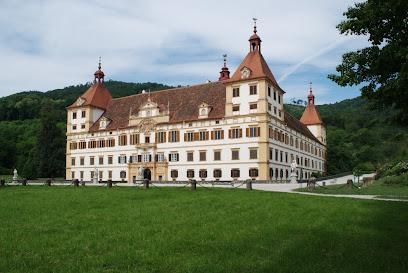
Kunsthaus Graz
Discover the contemporary art scene at Kunsthaus Graz, a striking museum that blends modern architecture with innovative exhibitions in the heart of Austria.
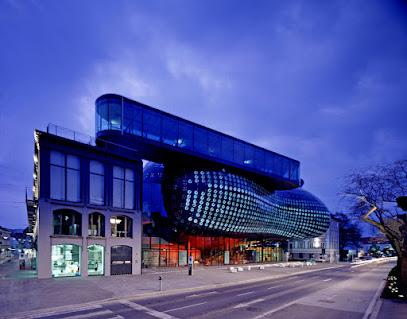
Murinsel Graz
Discover the architectural wonder of Murinsel Graz, a floating island that blends art, nature, and relaxation in the heart of Austria.
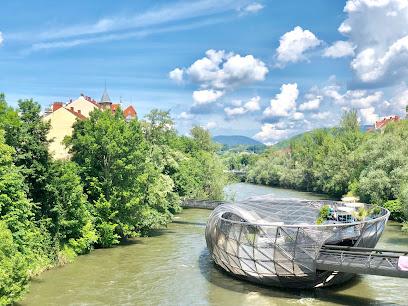
Augarten
Experience the serene beauty of Augarten Park, a cultural and natural gem in Graz, perfect for relaxation and exploration.
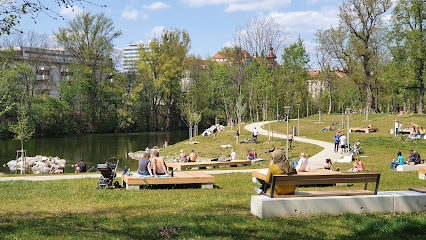
Opera Graz
Explore the exquisite Opera Graz, a historical landmark offering captivating performances in the heart of Austria's cultural gem, Graz.
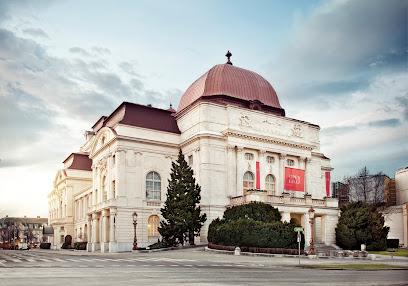
An Arnold Schearzenegger Exhibition
Explore the life of Arnold Schwarzenegger at his dedicated exhibition in Thal, Austria – a must-visit for fans and history enthusiasts.
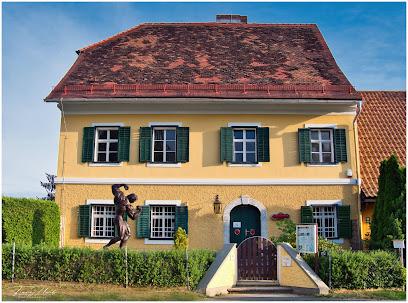
Old Town Of Graz
Explore the Old Town of Graz, a UNESCO World Heritage site, filled with rich history, stunning architecture, and vibrant culture.
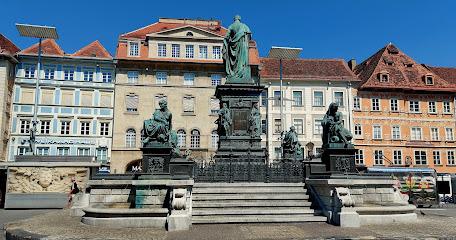
Styrian Armory
Explore the rich military history of Styria at the Styrian Armory, a remarkable museum showcasing an extensive collection of weapons and armor in Graz.
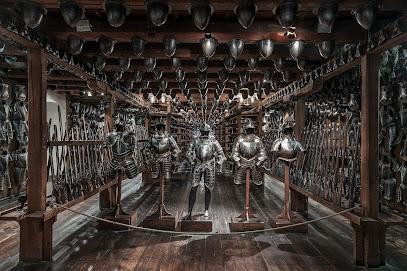
Austrian Open Air Museum Stübing
Discover Austria's cultural heritage at the Austrian Open Air Museum Stübing, where history meets stunning landscapes in a unique outdoor setting.
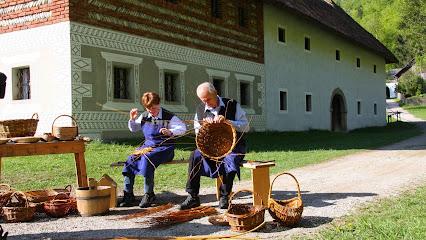
Landeszeughaus
Explore the Landeszeughaus in Graz, a historical museum showcasing Austria's captivating military heritage and unique armory collection.
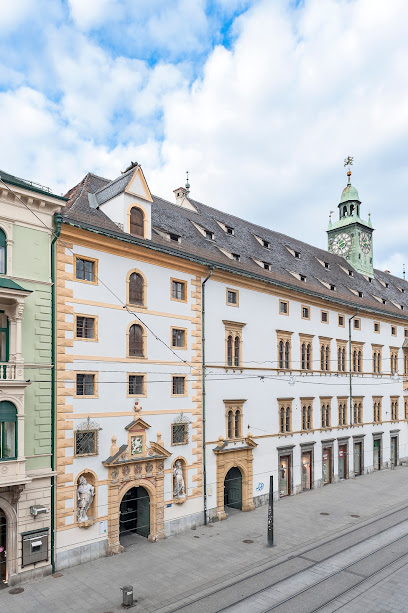
Frankowitsch
Discover the best gourmet grocery store and bar in Graz, offering delicious sandwiches and local delicacies in a cozy atmosphere.
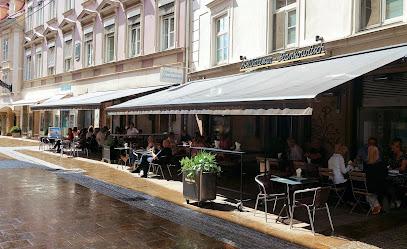
Volksgarten Graz
Explore the serene beauty of Volksgarten in Graz, a lush park perfect for relaxation, picnics, and enjoying nature's tranquility.
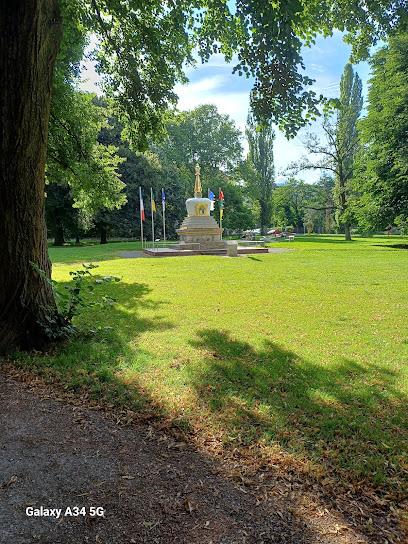
Essential places to dine
Glöckl Bräu
Discover the flavors of Austria at Glöckl Bräu - a top destination for authentic European cuisine in Graz.
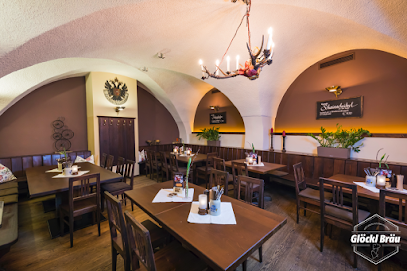
Clocktower Restaurant - American Bar & Grill
Experience the best of American cuisine at Clocktower Restaurant - where hearty meals meet vibrant bar culture in Graz.
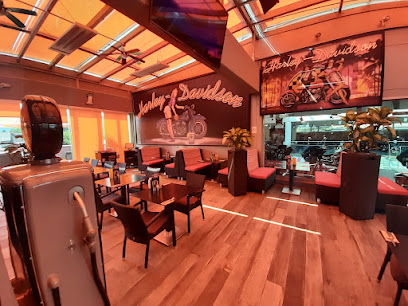
Der Steirer
Experience authentic Austrian cuisine at Der Steirer in Graz - where local flavors meet exceptional hospitality.
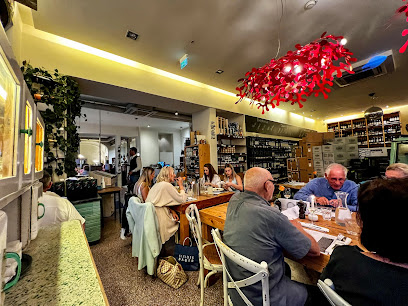
Gösser Bräu
Discover the essence of Graz at Gösser Bräu: where traditional Austrian cuisine meets exceptional locally brewed beers in a vibrant setting.
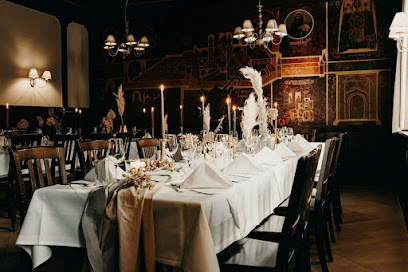
L'Osteria
Indulge in authentic Italian flavors at L'Osteria in Graz - where every meal is a celebration of taste and tradition.
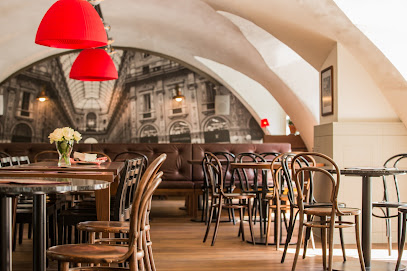
El Gaucho im Landhaus
Discover the finest steaks at El Gaucho im Landhaus in Graz - where culinary excellence meets European charm.
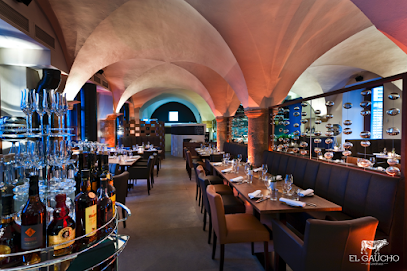
Burger Factory
Indulge in gourmet burgers at Burger Factory Graz - where taste meets creativity in a vibrant atmosphere.
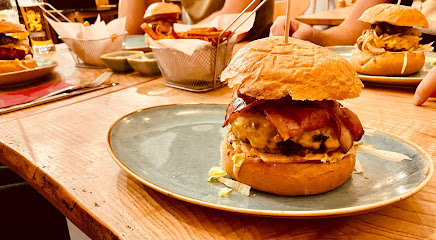
aiola upstairs
Discover exquisite European cuisine with stunning views at Aiola Upstairs in Graz – a culinary gem atop Schloßberg.
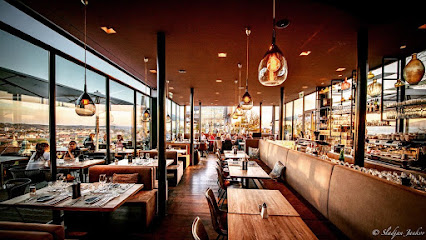
Landhauskeller
Experience the perfect blend of traditional Austrian cuisine and modern fusion at Graz's beloved Landhauskeller restaurant.
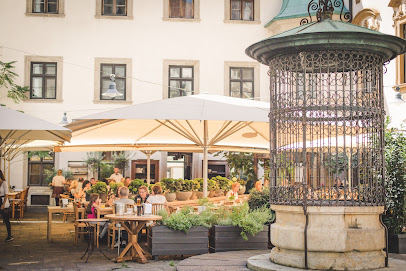
Lend-Platzl
Experience authentic Austrian flavors at Lend-Platzl in Graz – where tradition meets modern dining in an inviting atmosphere.
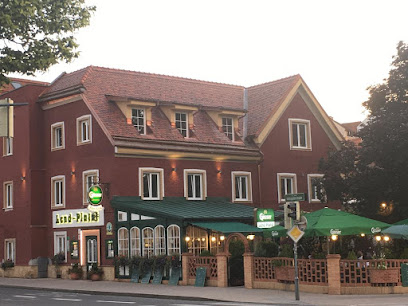
Herzl Weinstube
Discover authentic Austrian flavors at Herzl Weinstube in Graz - where tradition meets taste in a cozy dining atmosphere.
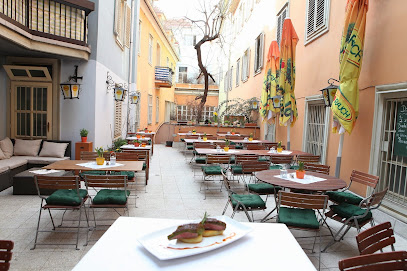
Ganesha
Experience authentic Indian cuisine at Ganesha in Graz - where every dish tells a story of tradition and flavor.
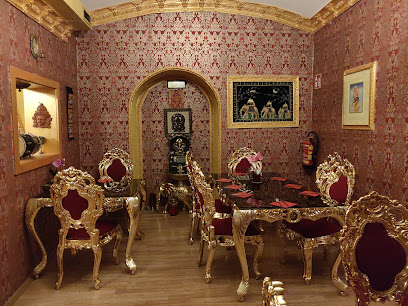
Die Scherbe
Experience local flavors at Die Scherbe in Graz—an enchanting restaurant-bar-café fusion perfect for food lovers.
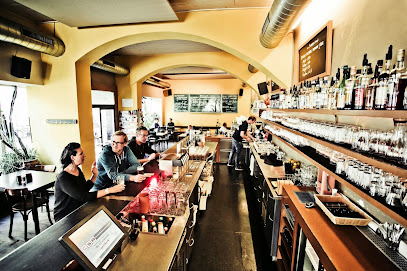
Swing Kitchen
Discover Swing Kitchen in Graz: where vegan fast food meets sustainability in a vibrant setting!
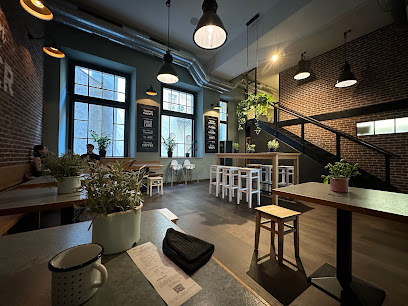
Knusperhäuschen
Experience authentic Austrian cuisine at Knusperhäuschen in Graz—where flavor meets tradition in a cozy setting.
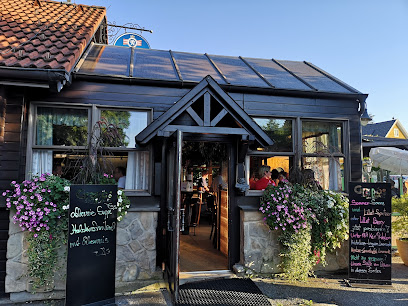
Markets, malls and hidden boutiques
MURPARK
Explore MURPARK in Graz: A vibrant shopping mall with diverse shops, dining options, and entertainment for all ages.
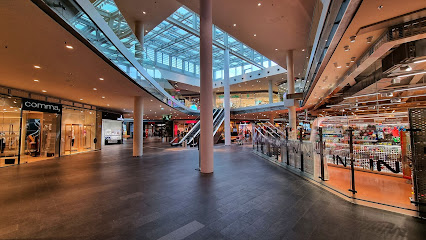
CITYPARK
Explore Citypark Graz, where shopping meets dining in a vibrant atmosphere, offering a unique experience for every visitor.
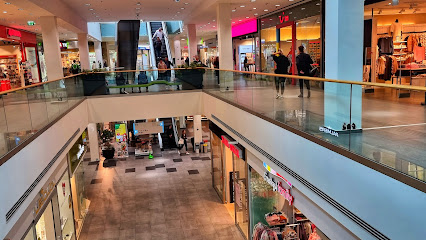
Center West
Discover a shopping paradise at Center West in Graz, Austria, featuring top brands, dining options, and family-friendly activities for an unforgettable experience.
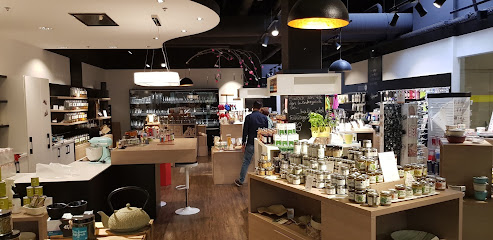
Shopping Nord
Discover Shopping Nord: Graz's premier shopping destination offering a wide selection of stores, delightful dining, and a vibrant atmosphere for all ages.
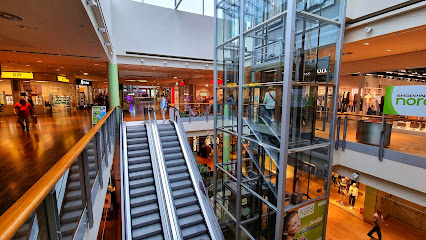
Bethrifty Vintage Kilo Store
Explore the charm of vintage fashion at Bethrifty Vintage Kilo Store in Graz, where unique clothing treasures await every visit.
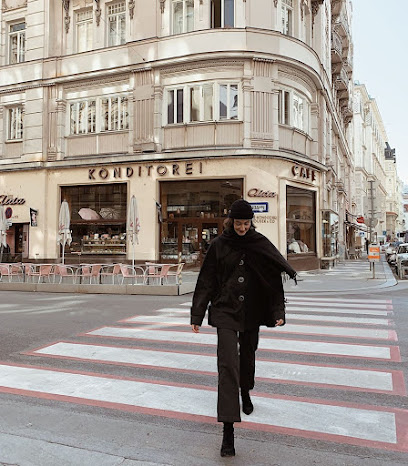
Frankowitsch
Discover Frankowitsch in Graz: a gourmet grocery store offering exquisite local delicacies and mouthwatering sandwiches amidst a vibrant atmosphere.
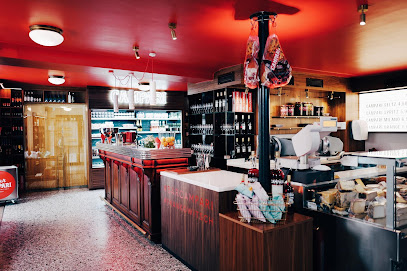
Ducks coffee shop
Discover the cozy charm of Ducks Coffee Shop in Graz, where exceptional coffee meets a warm, inviting atmosphere.
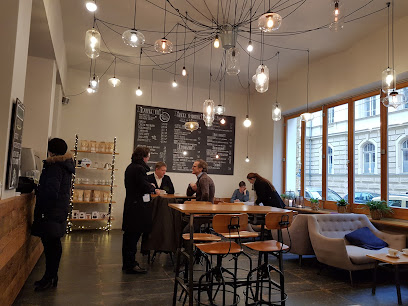
Nike Factory Store Graz Murpark
Uncover unbeatable deals on Nike's latest athletic footwear and apparel at the Nike Factory Store Graz Murpark, your ultimate sportswear shopping destination.
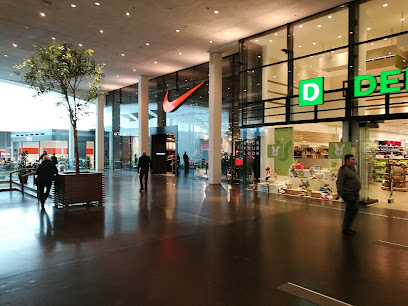
Flying Tiger Copenhagen
Explore Flying Tiger Copenhagen in Graz for a unique shopping adventure filled with creative gifts, toys, and home goods that delight every visitor.
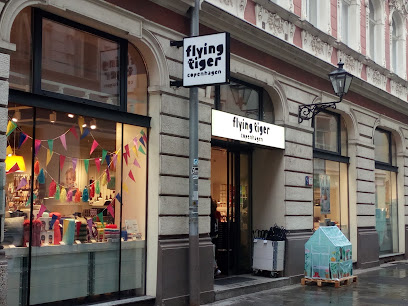
ANIGAME
Discover ANIGAME in Graz, a unique gift shop and video game store filled with collectibles, apparel, and more for every gaming enthusiast.
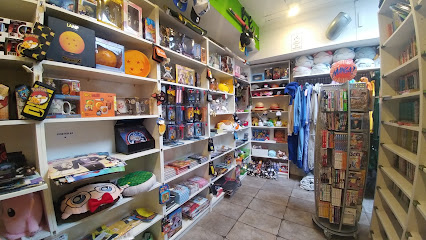
Elbenwald
Discover Elbenwald in Graz, a unique gift shop filled with clothing, toys, and pop culture treasures perfect for collectors and fans alike.
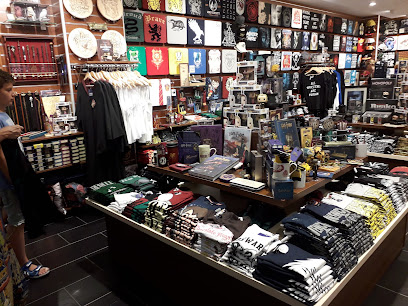
's Fachl Graz - Geschenke & Souvenirs
Explore 's Fachl Graz for unique gifts, local crafts, and gourmet delights that capture the spirit of Graz and make perfect souvenirs.
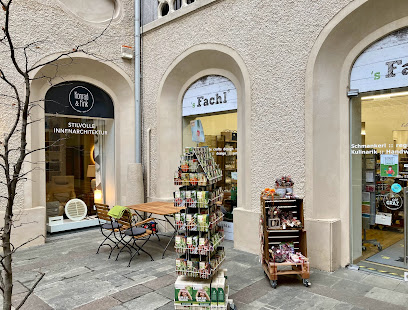
Fan Shop SK Sturm
Explore the SK Sturm Graz Fan Shop for exclusive sports memorabilia and gifts that capture the spirit of Austrian football.
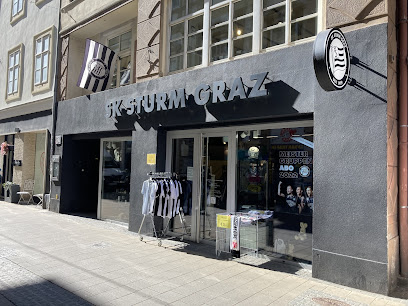
Nespresso Boutique Graz
Experience the essence of premium coffee at Nespresso Boutique Graz, where quality meets sophistication in the heart of Austria.
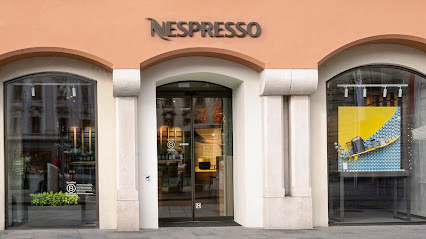
Dogdays of Summer – Vintage Online Shop und Second Hand Shop – Graz
Explore Graz's Dogdays of Summer for unique vintage clothing and sustainable fashion treasures, perfect for style enthusiasts and eco-conscious shoppers.

Essential bars & hidden hideouts
Flann O'Brien Original Irish Pub
Discover the authentic taste of Ireland in Graz at Flann O'Brien Original Irish Pub, where hearty food and lively atmosphere await.
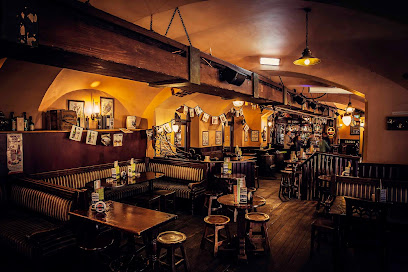
Molly Malone Irish Pub
Discover the heart of Ireland in Graz at Molly Malone Irish Pub, where lively atmosphere meets authentic Irish gastronomy.
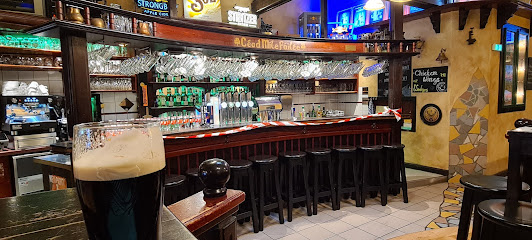
O'Carolan’s Irish Pub
Experience the heart of Irish culture at O'Carolan’s Irish Pub in Graz, featuring delightful food, drinks, and live music.
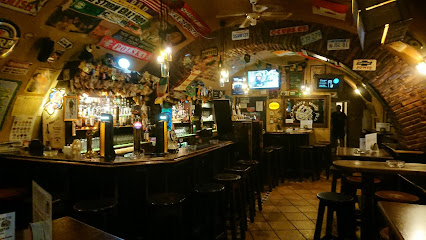
Coco Cocktail Bar
Discover the vibrant nightlife of Graz at Coco Cocktail Bar, where expertly crafted cocktails and a cozy ambiance await.
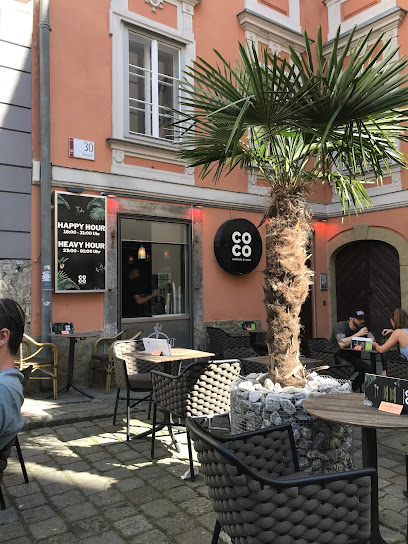
Tick-Tack
Discover the lively atmosphere of Tick-Tack Bar in Graz, where delicious gastropub fare meets an extensive drink selection.
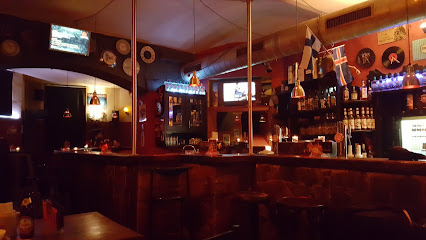
RANGOON Relax Cafe - Cocktail
Experience Graz's vibrant cocktail scene at RANGOON Relax Cafe, a stylish bar offering a creative drink menu and a welcoming atmosphere.
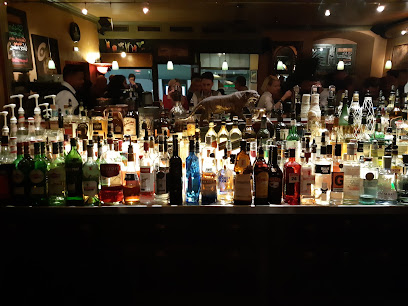
Cohibar
Experience the vibrant nightlife of Graz at Cohibar, where exceptional drinks and a lively atmosphere come together for an unforgettable evening.
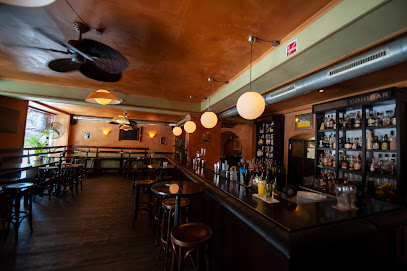
The Churchill
Experience the vibrant atmosphere and expertly crafted cocktails at The Churchill, Graz's premier cocktail bar, perfect for a night out.
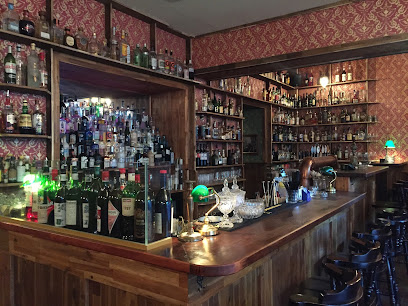
Up25
Experience the vibrant nightlife of Graz at Up25, a cocktail bar offering innovative drinks and a lively atmosphere for all visitors.
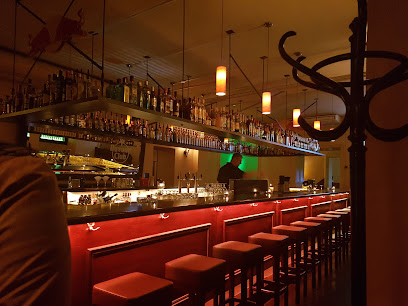
STEIRERPUB
Discover the vibrant atmosphere of STEIRERPUB, Graz's top Irish pub offering a delightful blend of local brews and hearty fare in a welcoming setting.
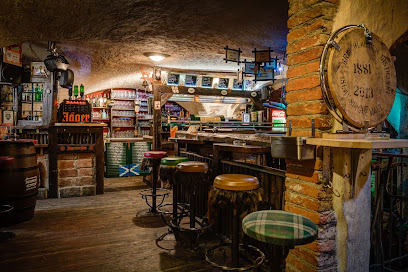
Bar Ernst Fuchs
Experience the vibrant atmosphere of Bar Ernst Fuchs in Graz, where unique cocktails meet artistic flair in a cozy setting.
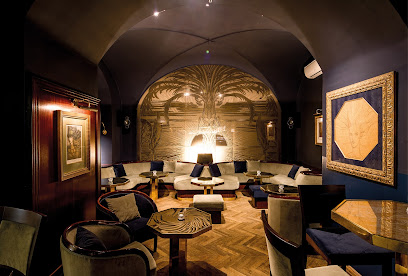
Bar Amouro
Experience the vibrant flavors of Graz at Bar Amouro, a unique bar and café blending culinary delights for every palate.
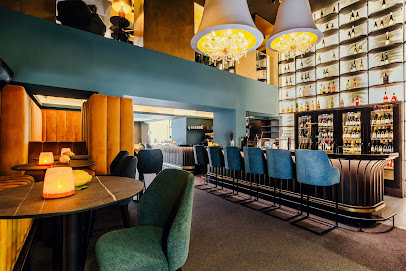
SKYBAR Graz
Experience breathtaking views and exquisite drinks at SKYBAR Graz, the perfect blend of elegance and relaxation in Austria's charming capital.
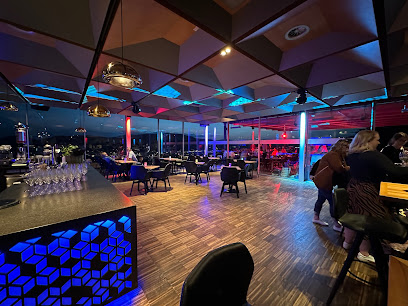
VINTAGE Café Bar Graz
Experience the unique blend of vintage charm and modern comfort at VINTAGE Café Bar Graz, a must-visit for every traveler exploring the city.
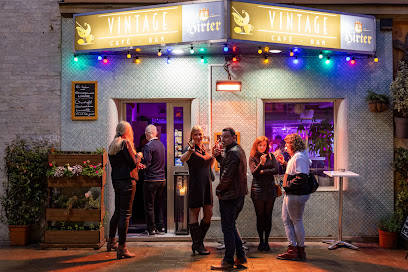
O bar
Experience the vibrant atmosphere and expertly crafted cocktails at O Bar, a must-visit cocktail bar and café in Graz, Austria.
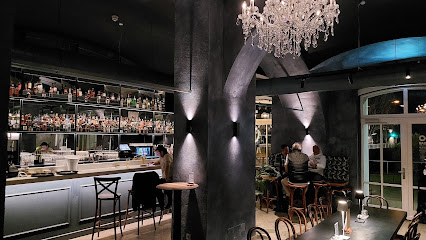
Local Phrases
-
- HelloHallo
[hah-loh] - GoodbyeAuf Wiedersehen
[owf vee-der-zay-en] - YesJa
[yah] - NoNein
[nine] - Please/You're welcomeBitte
[bih-teh] - Thank youDanke
[dahn-keh] - Excuse me/SorryEntschuldigung
[ent-shool-dee-goong] - How are you?Wie geht es dir?
[vee gayt es deer] - Fine. And you?Gut. Und dir?
[goot oont deer] - Do you speak English?Sprechen Sie Englisch?
[shpre-khen zee eng-leesh] - I don't understandIch verstehe nicht
[ikh fer-shtay-eh nikht]
- HelloHallo
-
- I'd like to see the menu, pleaseIch möchte bitte die Speisekarte sehen
[ikh mer-kh-teh bih-teh dee shpy-zeh-kahr-teh zay-en] - I don't eat meatIch esse kein Fleisch
[ikh es-seh kine flysh] - Cheers!Prost!
[prohst] - I would like to pay, pleaseIch würde gerne bezahlen, bitte
[ikh voo-der gehr-neh beh-tsah-len bih-teh]
- I'd like to see the menu, pleaseIch möchte bitte die Speisekarte sehen
-
- Help!Hilfe!
[hil-feh] - Go away!Gehen Sie weg!
[geh-en zee vekh] - Call the Police!Rufen Sie die Polizei!
[roo-fen zee dee po-lee-tsai] - Call a doctor!Rufen Sie einen Arzt!
[roo-fen zee i-nen artsht] - I'm lostIch habe mich verirrt
[ikh hah-beh meekh feh-rihrt] - I'm illMir ist schlecht
[meer ist sh-lekht]
- Help!Hilfe!
-
- I'd like to buy...Ich möchte kaufen...
[ikh mer-kh-teh kow-fen] - I'm just lookingIch schaue nur
[ikh sh-ow-eh noor] - How much is it?Wie viel kostet es?
[vee feel koh-stet es] - That's too expensiveDas ist zu teuer
[dahs ist tsoo toy-er] - Can you lower the price?Könnten Sie den Preis senken?
[kern-ten zee den prise zehn-ken]
- I'd like to buy...Ich möchte kaufen...
-
- What time is it?Wie spät ist es?
[vee shpeht ist es] - It's one o'clockEs ist ein Uhr
[es ist iyn oor] - Half past (10)Halb elf
[halb elf] - MorningMorgen
[mawr-gen] - AfternoonNachmittag
[nakh-mit-tahg] - EveningAbend
[ah-bent] - YesterdayGestern
[gehs-tern] - TodayHeute
[hoi-teh] - TomorrowMorgen
[mawr-gen] - 1Eins
[ines] - 2Zwei
[tsvai] - 3Drei
[dry] - 4Vier
[feer] - 5Fünf
[foontf] - 6Sechs
[zeks] - 7Sieben
[zee-ben] - 8Acht
[ahkt] - 9Neun
[noyn] - 10Zehn
[tsayn]
- What time is it?Wie spät ist es?
-
- Where's a/the...?Wo ist ein/der...?
[vo ist iyn/dehr] - What's the address?Was ist die Adresse?
[vas ist dee ah-dreh-say] - Can you show me (on the map)?Können Sie mir das zeigen (auf der Karte)?
[kern-en zee meer das tsai-gen (ouf dehr kahr-teh)] - When's the next (bus)?Wann kommt der nächste (Bus)?
[vahn kommt dehr nykh-ste (boos)] - A ticket (to ....)Eine Fahrkarte (nach ...)
[i-ne fahr-kahr-teh (nakh)]
- Where's a/the...?Wo ist ein/der...?
History of Graz
-
The history of Graz dates back to the Roman era when it was a small settlement known as 'Ad Murum'. The strategic location along the Mur River made it an important site for trade and military operations. Archaeological finds in the area highlight the significance of this early settlement in the Roman province of Noricum.
-
In the Middle Ages, Graz developed around a fortress built on the Schloßberg, a hill that overlooks the city. The fortress was first mentioned in documents dating back to the 12th century. It served as a defensive stronghold for the Duchy of Styria, protecting the region from invasions by Hungarian and Ottoman forces.
-
Graz became a crucial administrative center under the Habsburg dynasty in the late 16th century. Archduke Charles II of Austria established his court in Graz, which led to significant cultural and architectural developments. The city's Renaissance and Baroque buildings, such as the Landhaus and the Mausoleum of Emperor Ferdinand II, are remnants of this prosperous period.
-
The University of Graz, founded in 1585 by Archduke Charles II, is one of the oldest universities in Austria. It has been a center of education and research for centuries, contributing significantly to the intellectual and cultural life of the city. Notable alumni include Nobel Prize-winning physicist Erwin Schrödinger.
-
During the Napoleonic Wars, Graz experienced significant turmoil. In 1809, the city was occupied by French troops under the command of Napoleon Bonaparte. The Schloßberg fortress was partially destroyed, and the city had to endure heavy taxation and requisitioning by the occupying forces.
-
The 19th and 20th centuries saw Graz transform into a modern urban center. The construction of railways and industrialization spurred economic growth. The city expanded beyond its medieval core, with new neighborhoods and infrastructure. Graz also became a hub for the automotive and steel industries, further boosting its economic stature.
-
In 2003, Graz was designated as the European Capital of Culture. This recognition highlighted the city's vibrant cultural scene, which includes numerous museums, galleries, and theaters. The Kunsthaus Graz, an iconic contemporary art museum, and the Murinsel, an artificial island on the Mur River, are symbols of the city's commitment to modern art and architecture.
-
The historic center of Graz and the Eggenberg Palace were designated as UNESCO World Heritage Sites in 1999 and 2010, respectively. The recognition celebrates the city's well-preserved medieval and Renaissance architecture, as well as its cultural and historical significance. These sites attract visitors from around the world, eager to explore Graz's rich heritage.
Graz Essentials
-
Graz is easily accessible by various means of transportation. The nearest international airport is Graz Airport (Flughafen Graz), located about 9 kilometers south of the city center. Direct flights connect Graz with several major European cities. Alternatively, Vienna International Airport is about 2.5 hours away by train, offering more extensive international connections. Graz is also well-connected by train, with frequent services from Vienna, Salzburg, and other Austrian cities. If you prefer driving, Graz is accessible via the A2 and A9 motorways.
-
Graz has an efficient public transportation system, including trams, buses, and regional trains operated by Graz Linien. A single ticket is valid for both trams and buses, and you can purchase tickets at vending machines, ticket offices, or via mobile apps. For short distances, cycling is popular, and there are bike rental services available throughout the city. Taxis are also readily available and can be hailed on the street or booked via phone or apps. For exploring the surrounding regions, renting a car is a convenient option.
-
The official currency in Austria is the Euro (EUR). Credit and debit cards are widely accepted in Graz, especially in hotels, restaurants, and larger shops. However, it is advisable to carry some cash for smaller establishments, markets, and tips. ATMs are widely available throughout the city, and most banks offer currency exchange services. Contactless payment methods are increasingly common and accepted in many places.
-
Graz is generally a safe city for tourists. However, standard safety precautions should be taken. Always be aware of your surroundings and keep an eye on your belongings, especially in crowded areas like public transport hubs and tourist attractions. Avoid walking alone at night in poorly lit or unfamiliar areas. While Graz does not have specific high-crime neighborhoods targeting tourists, it is always best to stay vigilant.
-
In case of emergency, dial 112 for immediate assistance. This number connects you to police, fire, and medical emergency services. Graz has several hospitals and clinics, including LKH-Universitätsklinikum Graz, which provides comprehensive medical care. Pharmacies (Apotheken) are widely available, and many have 24-hour service. It is advisable to have travel insurance that covers medical emergencies.
-
Fashion: Do dress smartly and comfortably. Austrians appreciate well-dressed individuals, especially in formal settings. Avoid overly casual or revealing clothing in churches and upscale restaurants. Religion: Do respect local customs and traditions. When visiting churches, dress modestly and keep your voice low. Public Transport: Do validate your ticket before boarding. Don't eat, drink, or play loud music on public transport. Greetings: Do greet people with a friendly 'Grüß Gott' (Hello). A firm handshake is customary for formal introductions. Eating & Drinking: Do try local specialties like Styrian pumpkin seed oil and schnitzel. Don't rush meals; Austrians enjoy leisurely dining experiences.
-
To experience Graz like a local, visit the Farmers' Market at Kaiser-Josef-Platz for fresh produce and local delicacies. Take a leisurely stroll through the historic old town, a UNESCO World Heritage Site, and explore its narrow streets and hidden courtyards. For a unique view of the city, hike up to the Uhrturm (Clock Tower) on Schlossberg hill. Engage with locals at traditional coffee houses or 'Heurigen' (wine taverns) for an authentic cultural experience. Don't miss out on seasonal events like the Styriarte Festival in summer or the Advent markets during the Christmas season.
Nearby Cities to Graz
-
Things To Do in Maribor
-
Things To Do in Ptuj
-
Things To Do in Velenje
-
Things To Do in Szombathely
-
Things To Do in Celje
-
Things To Do in Rogaška Slatina
-
Things To Do in Klagenfurt
-
Things To Do in Zalaegerszeg
-
Things To Do in Sopron
-
Things To Do in Kamnik
-
Things To Do in Eisenstadt
-
Things To Do in Bled
-
Things To Do in Škofja Loka
-
Things To Do in Ljubljana
-
Things To Do in Keszthely























